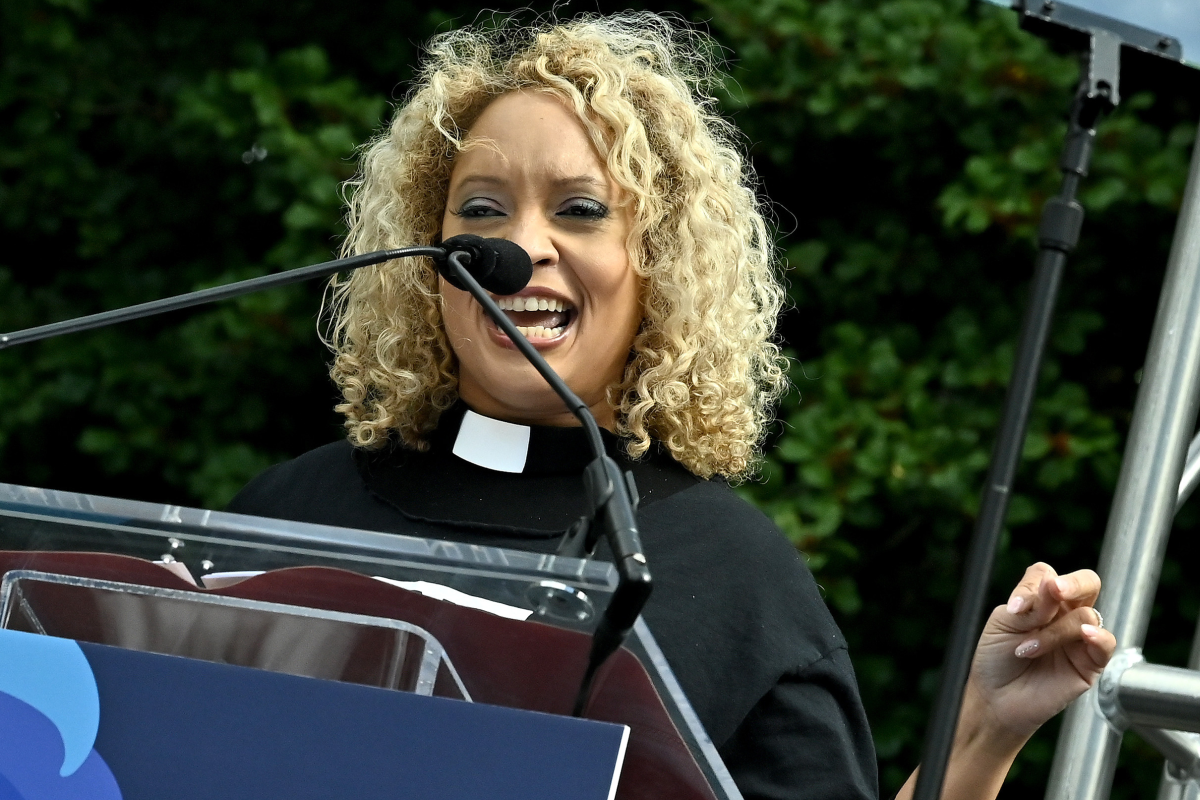A judge in California appointed by former President Donald Trump ruled against his administration in the case of a New York City pastor who was allegedly targeted by a secretive border surveillance program that allowed the arrest of anyone accused of aiding undocumented migrants to the United States—even if there was no evidence they committed a crime.
In a 44-page ruling earlier this month, U.S. District Court Judge Todd Robinson, a member of the conservative Federalist Society and a former prosecutor with a long history handling immigration cases in Southern California, ruled Trump's Department of Homeland Security "unlawfully retaliated" against Pastor Kaji Douša by reporting her to Mexico authorities in 2018 over her ministry to members of a migrant caravan seeking asylum in the U.S.
"This ruling is a significant court win for the First Amendment and a rare rebuke from a federal judge against a federal law enforcement agency—in particular, DHS and CBP," Scott Welder, a member of Douša's legal team said in a joint statement to Newsweek on behalf of non-profit advocacy group Protect Democracy, which led her case. "Pastor Douša's experience illustrates the distance the government can go to further marginalize disfavored groups and the dangers to democracy inherent in law enforcement designed to stifle dissent. Her victory is an important step in the fight to seek accountability for government abuses of power."
The decision was first reported by the San Diego Union-Tribune.
Trump officials alleged that in addition to her ministry and activist work, Douša—a noted immigration activist—traveled across the U.S.-Mexico border with the express intent to perform marriages for couples seeking to enter the country in a move they claimed would help those migrants achieve citizenship in the U.S.

Her arrest, they said, was an effort to mitigate what they believed to be an effort to defraud the U.S. immigration system by someone they claimed had a long history of pro-migrant activism who, under the conditions of U.S. Customs and Border Patrol's Global Entry program, was not authorized to be in the country in the first place.
In apprehending her, the government "did not retaliate" against her for protected activity, they argued in court filings: they acted for "legitimate law enforcement purposes."
The government "sought to fulfill their law enforcement duties in accordance with the compelling government interest in both border security and the integrity of the immigration system," U.S. Attorney for the Southern District of California Randy Grossman—a Joe Biden appointee—argued in a post-trial brief.
Douša's attorneys, however, said the pastor explicitly told those migrants their marriages would not bear the force of law in the United States, and would not aid them in their effort to apply for asylum. Claims by the government that her efforts to use a religious sacrament to defraud the immigration system, Douša testified during the trial, "is absurd."
But Dousa was not alone. In July 2019, a government whistleblower leaked internal documents showing Douša among a secret blacklist of journalists, lawyers, and advocates the government associated with migrant caravans in the San Diego-Tijuana area. This created cause for her to file suit that the Trump administration was seeking to chill anyone from associating with or speaking out about the caravans.
A lower court agreed, with the judge in that case saying the government had clearly singled her out based on "its pattern of surveillance and the chilling effect this surveillance has had on her exercise of protected activity."
Robinson agreed. The Trump-appointed judge ruled that by reporting her to Mexican authorities under false pretenses of defrauding the U.S. immigration system, U.S. Customs and Border Patrol "unlawfully retaliated" against Douša for her protected First Amendment activity in addition to violating her religious freedom to minister to migrants in Mexico.
Douša and her attorneys hailed the ruling as a significant civil rights victory.
"With this decision, I see the hand of God bending the arc toward justice Judge Robinson vindicated what I knew to be true all along: my own government didn't like who God called me to serve, so they did everything they could think of to make that nearly impossible for me," Douša said in a statement following the ruling.
"This righteous ruling gives me the chance to get back to my ministry unimpeded by government intervention."
Update 03/30/23 5:01 p.m. ET: This article was updated with comment from Scott Welder.
Correction: This article was updated to correctly reflect that the San Diego Union-Tribune was the first to report.
Uncommon Knowledge
Newsweek is committed to challenging conventional wisdom and finding connections in the search for common ground.
Newsweek is committed to challenging conventional wisdom and finding connections in the search for common ground.
About the writer
Nick Reynolds is a senior politics reporter at Newsweek. A native of Central New York, he previously worked as a ... Read more
To read how Newsweek uses AI as a newsroom tool, Click here.








